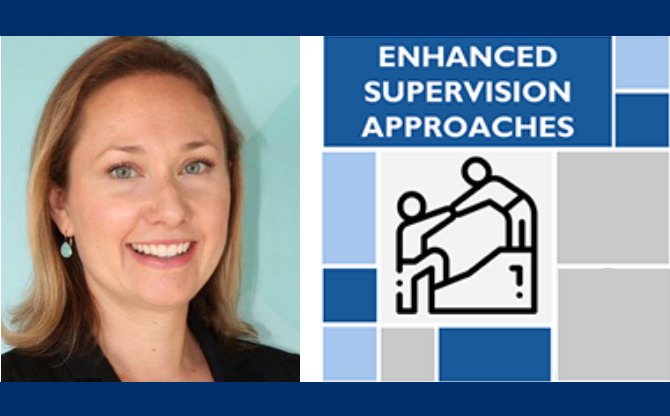
15 Jul Enhanced Supervision Approaches: Key to High-Quality Health Services
This blog originally appeared on the Management Sciences for Health Leader Net website.
People drive health systems. I think a lot about health worker performance and productivity in my work with the HRH2030 Program. After all, a health system’s strength—and ultimately the health of any population—depends upon the strength of its health workforce. However, too often health workers are not very well supported, under-resourced, and poorly managed at their jobs, which can result in low-quality services.
However, effective health worker supervision can help compensate for shortfalls in training and management of the health workforce, and thus improve the quality of health services. Although various systematic reviews and research have attempted to identify key components of effective supervision, from an implementation perspective, it is hard to know where to begin. What is effective? When reviewing the literature, which promising practices can be scaled up or adapted in other contexts, and how?
The HRH2030 program has captured some insights responding to these challenges in the Enhanced Supervision Approaches: Landscape Analysis Findings Report. Phase I of a two-part activity, this report documents promising health worker supervision approaches that have resulted in measurable improvements: whether at the health worker level (e.g., knowledge, competencies, motivation, and job satisfaction) or the health systems level (e.g., service delivery quality, data use, cost-effectiveness, or even population health). We then used a performance framework to systematically analyze the specific inputs, processes, characteristics, and factors of these supervision approaches and reviewed them for themes. We also wanted to understand which approaches had been adapted, integrated, scaled and sustained.
What did we learn?
Our report shows that health worker supervision can have the greatest impact when it is enhanced by using evidence-based, quality-driven tools and processes that integrate health worker performance management with other system-wide approaches—including support to the supervisors themselves—that are adapted to context and address the root causes of low performance.
One enhanced supervision approach that has shown great value is quality improvement-focused clinical mentorship. “Mentorship and Enhanced Supervision for Health Care and Quality Improvement” (MESH-QI), has been implemented in two health districts in Rwanda by Partners in Health and its sister organization Inshuti Mu Buzima for nearly a decade. Initially developed to optimize auxiliary nursing workforce performance, MESH-QI was later adapted and scaled nationally in collaboration with the Rwandan Ministry of Health. MESH-QI has demonstrably improved skills, knowledge, and attitudes of health workers, as well as improved the quality of care provided, including reproductive, maternal, neonatal, child and adolescent health services, as well as for mental health and noncommunicable diseases.
Another example comes from Population Services International (PSI), which developed the Health Network Quality Improvement System (HNQIS) to enhance supervision for both public and private sector health care providers. HNQIS is a tablet-based application that supports health worker supervisors to plan supervision visits; assess quality of care against clinical standards; improve quality of care through tailored feedback; and monitor improvements over time. HNQIS helps supervisors make good use of existing health information system data streams, such as DHIS2, to understand where support is needed most. HNQIS has been implemented in 19 different countries in sub-Saharan Africa and Asia. It has helped improve health worker productivity, efficiency, and competencies for health services, including malaria and family planning, as well as ameliorating the quality of these services.
Stay tuned for Phase II of our activity on enhanced supervision. Our team is currently contextualizing the Landscape Analysis findings to develop an assessment for measuring enhancements to Mali’s national health worker supervision system. We will be excited to share what we learn.
Photo: Blog author and HRH2030 Technical Director Rachel Deussom is pictured to the left.





